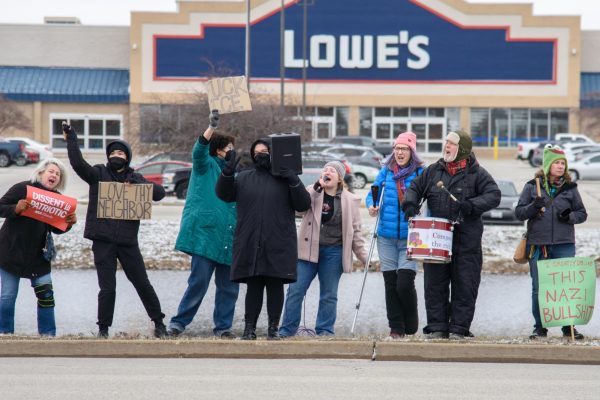Election brings youth to polls
Nov 12, 2004
Last updated on May 11, 2016 at 05:07 p.m.
After an intense presidential election characterized by a focus on young voters, the turnout results are in.
Recent statistics show that 21 million young people voted in the 2004 presidential election – 4.6 million more than in 2000, according to the University of Maryland’s Center for Information on Civic Learning and Engagement (CIRCLE)
But that increase was tempered by an overall increase in the total number of voters in the election, said Thomas Rudolph, assistant professor in political science at the University.
“Some pundits were predicting that the youth vote would make the difference in the election,” he said. “There was a slight increase in turnout among 18-29 year olds, but the increase among the ‘youth’ vote was not significantly greater than the corresponding increase among other age groups.”
Get The Daily Illini in your inbox!
Still, Hans Reimer, political director for Rock the Vote, a national campaign to mobilize young voters, said he was satisfied with the turnout.
“(We were successful) beyond our hopes and dreams because way more young people turned out than we ever thought possible,” Reimer said. “We really made young people a swing group in the election. We convinced the parties and media to focus on them.'”
The CIRCLE Web site said 51.6 percent of young voters voted in the election, an increase of about 9 percentage points.
Reimer pointed to the data as evidence that Rock the Vote met their goal of getting more than 50 percent of young people to vote.
“In politics, increasing turnout by two or three percentage points is a big deal,” Reimer said. “Young voter turnout increased by 9 percentage points – I would call that triple what most people thought was possible.”
Reimer said young people came out because they cared about issues such as the economy, education, health care, the Iraq conflict and gay marriage.
“They felt like the issues made a big difference in their lives,” Reimer said. “They felt like it really mattered and they felt like their peers were part of a movement. They were all going to vote together.”
Nicholas Duchnowski, junior in engineering, was part of that group, but said his decision to vote was about exercising a right, not swaying the election. He said voting is an important part of the democratic process.
“As they say, ‘You can’t complain about things if you don’t vote for them,'” Duchnowski said. “I felt that even though my individual vote might not count, it would be like more younger people coming to the polls … and then politicians might pay more attention to the younger constituents.”
Christi Dineff, senior in communication, said she was surprised the young voter turnout was not higher because so many of the people she knew voted. However, she said celebrities had nothing to do with her decision. These celebrities included rapper Sean “P. Diddy” Combs who warned young people to “vote or die.”
“I really appreciate what (Combs) was doing, but I’m not easily affected by it,” she said. “I wasn’t scared not to vote like ‘vote or die.’ I didn’t think P. Diddy was going to come shoot me or anything.”
Although Dineff said she will continue to vote because she values political involvement, she said she doubts this year’s influx of youth voters will continue in future elections.
“I feel really bad saying this, but if it was just two candidates that people didn’t care about, then they probably won’t vote,” she said.
But Reimer remains optimistic. He said Rock the Vote will continue to target young people and the next election should be just as exciting.
“Hopefully, this is the start of a new trend,” Reimer said. “It’s possible that this generation of young people is just fundamentally more engaged. This is the 9-11 generation. They may hear a higher calling then those that came before them.”





